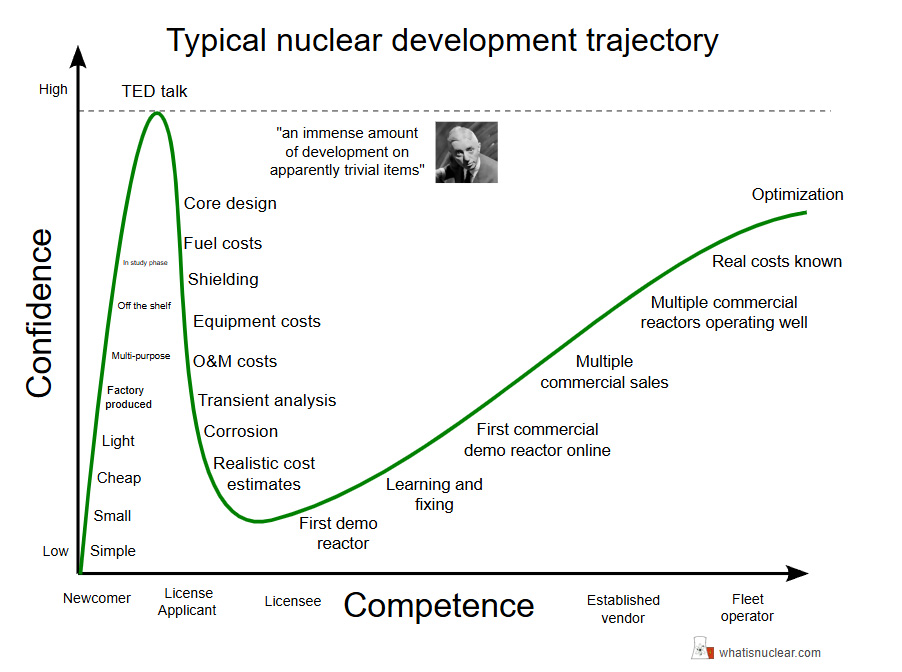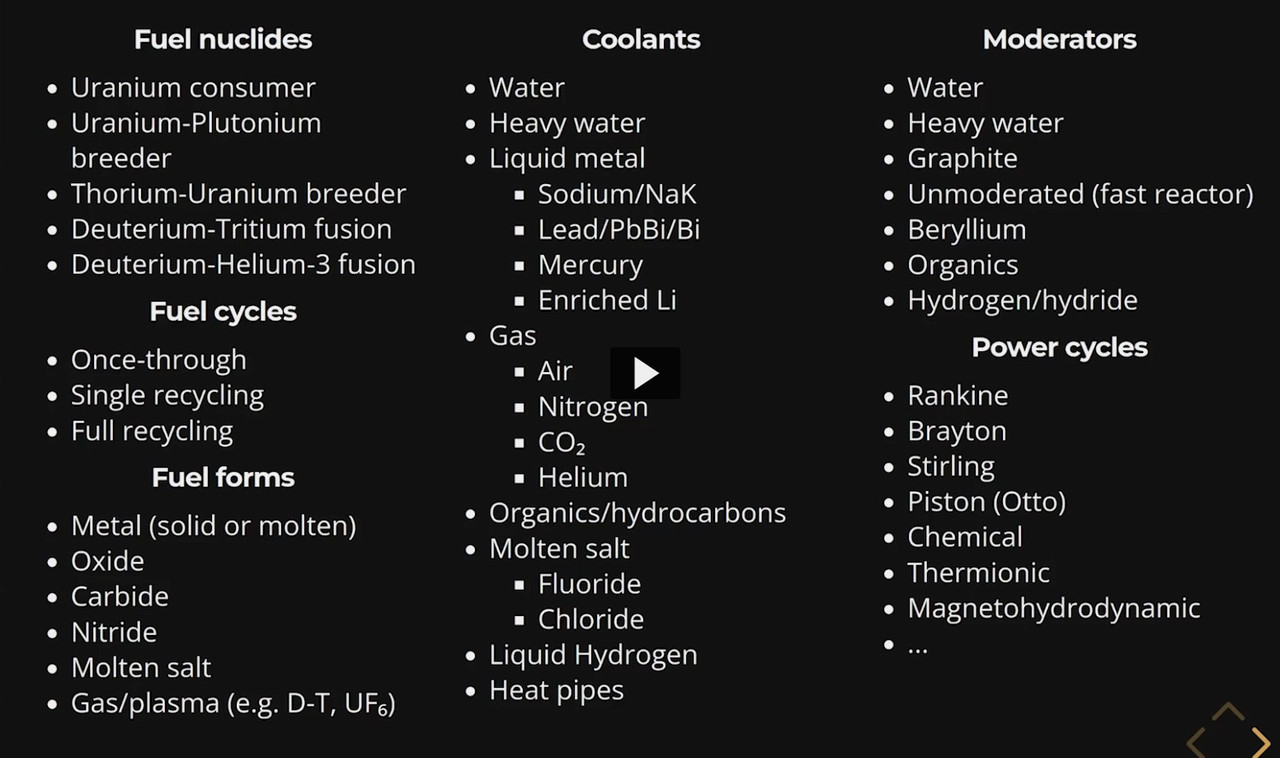Nuclear Engineer and Nuclear Historian Nick Touran Speaking at the Princeton Plasma Physics Lab (PPPL).
Colloquium: The Early History of Nuclear Reactor Development
Nick is a really knowledgeable guy - he spent 15 years at Terrapower - and designs nuclear reactors of different types while offering caveats with respect to the issues that novel technologies face.
He points out that in the early days some stuff took place that in modern times we might think are crazy, which is not to say that we have a clear understanding in our time as to what is and is not "crazy." The world survived the failed reactors Nick discusses in this video.
I haven't watched the whole thing. The slides are apparently available on his wonderful website, which I haven't found the time to explore as much as I would to like to do,
What Is Nuclear?
Nick speaks with humor and wit and although he suggests caution in making claims, he thinks the exercise of thinking differently is a worthy one, I think. (I believe it is an essential one, we must have freedom to embrace new nuclear ideas.)
A fun graphic at WhatisNuclear:

Recently, in a conversation with my son on the joy of struggling - he's faced some roadblocks in his research work, which makes his brother and I secretly happy for him - I told him that when I die, and he goes through my stuff, I would like him to be sure to go through
Fould's book on Combinatorial Optimization where one can learn - if I remember well - that one must sometimes wander far from "accepted practice" to leave a local maxima to achieve a better local (or even - if it exists - global maxima) in experimental procedure. Fear of wandering too far can lead to failure and/or at least a lack of great achievement. His problem - I don't know this, since I don't understand his work - may be that the "normal" ways are insufficient to the requirements of his task. He may need to risk a "crazy" idea.
A slide from the presentation that I captured is this one, a representative of the combinatorial space of reactor options:

Anyway. If we are to save the world, we must expand the mission of nuclear energy beyond merely making electricity. This will involve the acceptance of risk, but without accepting risk, we are doomed to the results of the risk we took when we embraced fossil fuels.
This guy giggles a lot, but he's an important thinker.

